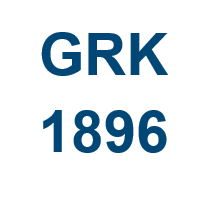DFG extends funding period for the Research Training Group “In situ microscopy with electrons, X-rays and scanning probes”
Due to their special properties, such as their deformation behavior, nanomaterials play a key role in modern materials research. In order to better understand this, the young scientists of the doctoral program GRK 1896 “In situ microscopy with electrons, X-rays and scanning probes” around EAM member Prof. Erdmann Spiecker are developing novel microscopy and analysis methods. The German Research Foundation (DFG) has now extended the funding of the Research Training Group for a further four and a half years, providing more than five million euros in funding.
The newly developed investigation methods should make it possible to test nanomaterials on the smallest scale. For this, the FAU researchers expose the nanomaterials to external forces or change and observe their reactions. Because of the tiny dimensions that nanomaterials occupy, the young researchers use the large-scale equipment of the Center for Nanoanalysis and Electron Microscopy (CENEM), which as one of FAU’s interdisciplinary centers is featuring cutting-edge instrumentation, techniques and expertise required for microscopic and analytical characterization of materials and devices down to the atomic scale.
Once again, FAU is proving to be an outstanding location for research and promotion of young scientists. In addition to funding this doctoral program, the DFG has also extended a Research Training Group from the Department of Medical Chemistry. In addition, a new Research Training Group in the field of mathematics was approved.

